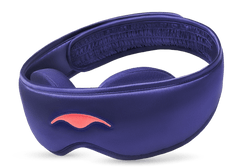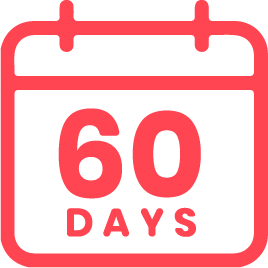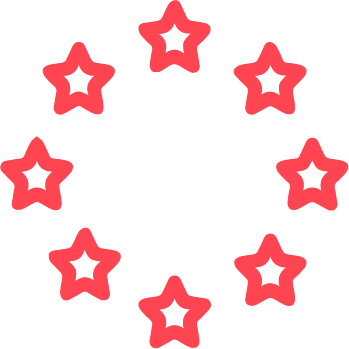Will Full Moons Affect Your Sleep? Truth or Myth?
The moon has been a celestial body of veneration, reverence, and worship among primal societies for millennia.
Full moon, especially, has always been an object that captures our sense of attention and wonder as it shines dazzlingly in the night sky.
Have you ever wondered why you struggle to fall asleep or to sleep deeply during full moons? Believe it or not, it is a commonly reported experience linked to the moon’s cycles.
Even millennia ago, observers of the night sky noticed a seeming link between restlessness and the full moon. These superstitions were reinforced by wild tales and rumors of odd goings on during the night of a full moon.
As time passed, these beliefs morphed into myths, and legends that can be traced from the time of the Romans to the present day.
Full Moon Legend and Mythology
In Roman mythology, the goddess Luna was the female incarnation of the moon. Each night, she would drive her silver chariot across the sky.
The Romans believed her power was tied to the phases of the moon, and that these moon cycles were strong enough to make a person sleepless or even temporarily insane.
According to the Romans, Luna’s power was most manifest when the moon was at its greatest magnitude. Those who were said to be “moon-struck”, or “moon-sick” were called Lunaticus. This word should look familiar since it is the Latin word from which we derive the word lunacy or lunatic.
Ancient healers and philosophers believed that lunatics had been visited by the goddess and received her kiss. Those who received Luna’s “kiss” would be left sleepless, tossing and turning in their beds or wandering through the streets of Rome at night as if in a dream.
In medieval Europe, those who committed crimes during the full moon would regularly receive lighter sentencing on grounds of lunacy. Even early psych wards in Europe would shackle patients to their beds as a precautionary means of preventing lunar influence.
From Legend to Sleep Science
Upon reading this, your first instinct might be to mock the Roman or Medieval superstitions. It’s all too easy to laugh about stories of the full moon changing or physically affecting people.
However, it would be wise to temper such derision, since we already know that the moon can physically affect humans, with the best example of this being a woman’s menstrual cycle.
The term menstruation and menses derive from both Latin and Greek words that mean moon (mene) and month (menses).
Although there are a variety of evolutionary theories conjecturing why the human menstrual cycle length evolved to the same as that of the lunar cycle. A 1986 study confirmed, “A synchronous relationship between the menstrual cycle and lunar rhythm (1).”
Further, scientists have known for decades that our Circadian System, the body’s internal clock and sleep system, has naturally during the span of centuries, synched to the earth’s astronomical cycles.
One of the circadian system’s main functions is the timed release of various hormones, especially melatonin, which are tied into the body’s adaptation to this ceaseless transition of day to night and night to day (2).
Because of this, it should be no surprise to find out that sleep researchers believe that the full moon can also affect your sleep cycle, lending some credibility to the ancient tales of moon-crazed people.
The Swiss Sleep Study
While this has been theorized for decades, most accounts of full moon insomnia were purely anecdotal and had little scientific backing.
In 2013, scientists and medical professionals at the University of Basel revisited a 2003 (3) sleep study to see if they could find a link between insomnia and the full moon.
Upon review, they looked at the data and then compared it during different cycles of the moon and what they found regarding the lunar effect surprised them.
The data showed that during full moon cycles, on average, the subjects (who were in a dark room and couldn't see the moon):
- Slept for 20 fewer minutes
- Took 5 minutes longer to fall asleep
- Experienced 30% less brain activity related to deep sleep
- Had lower melatonin levels than on other nights
Subjects reported that they felt more tired the day after full moon insomnia than on other days. While researches found this to be fascinating, they could not say why it was happening.
These findings, however, were confirmed by an additional 2014 study that concluded, “The results are consistent with a recent report and the widely held belief that sleep characteristics may be associated with the full moon. (4)”
Full Moons and Your Sleep
Although curious observers have been noting the effects of the full moon on humans for thousands of years, scientifically, this subject is still in its fledgling stage. More research needs to be conducted in order to determine how and why the full moon is capable of affecting your sleep and sleep cycles.
Perhaps you have noticed that your sleep is altered during full moon cycles. If this is the case and you are battling any form of insomnia, whether it be natural or caused by a full moon, there are a variety of options at your disposal.
For those of you who need a little extra help, one of the best remedies for full moon insomnia is to try using a sleep mask. By guarding your eyes, you can prevent the goddess of moon from entering your bedroom and stealing your sleep.
Sources:
(1) Law SP. " The regulation of menstrual cycle and its relationship to the moon. " PubMed.gov, www.ncbi.nlm.nih.gov/pubmed/3716780. Accessed 18 September 2018.
(2) Swaab DF et al. "Biological rhythms in the human life cycle and their relationship to functional changes in the suprachiasmatic nucleus." PubMed.gov, www.ncbi.nlm.nih.gov/pubmed/8990925. Accessed 18 September 2018.
(3) Cajochen et al. "Evidence that the Lunar Cycle Influences Human Sleep" Current Biology (2013), www.dx.doi.org/10.1016/j.cub.2013.06.029. Accessed 18 September 2018.
(4) Turányi CZ et al. "Association between lunar phase and sleep characteristics." PubMed.gov, www.ncbi.nlm.nih.gov/pubmed/25266502. Accessed 18 September 2018.



































![Manta Sleep Earplugs [10 Pairs]](https://cdn05.zipify.com/sQQA6xKYQn2FecyvgbWD1D8WnoA=/fit-in/1030x0/d40324cb6efd43759b43e4dbb4c2c84f/earplugs.jpg)

